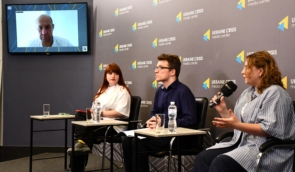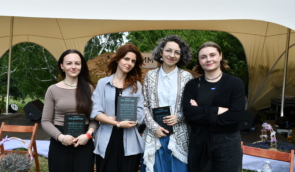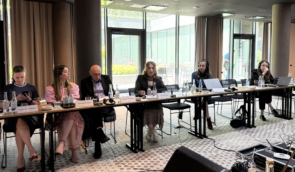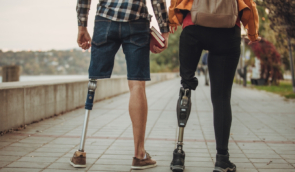Human rights activists have prepared an analysis of the Ministry of Reintegration’s draft law on transitional period
The coalition of human rights organizations, which includes ZMINA Human Rights Centre, Crimean Human Rights Group, “Donbass SOS”, “Krym SOS”, “Vostok-SOS”, Charitable Foundation “The Right to Protection”, Public Holding “GRUPA VPLYVU” and Charitable Foundation “Stabilization Support Services”, prepared an analysis of the draft law of Ukraine“ On the state policy of the transition period”.
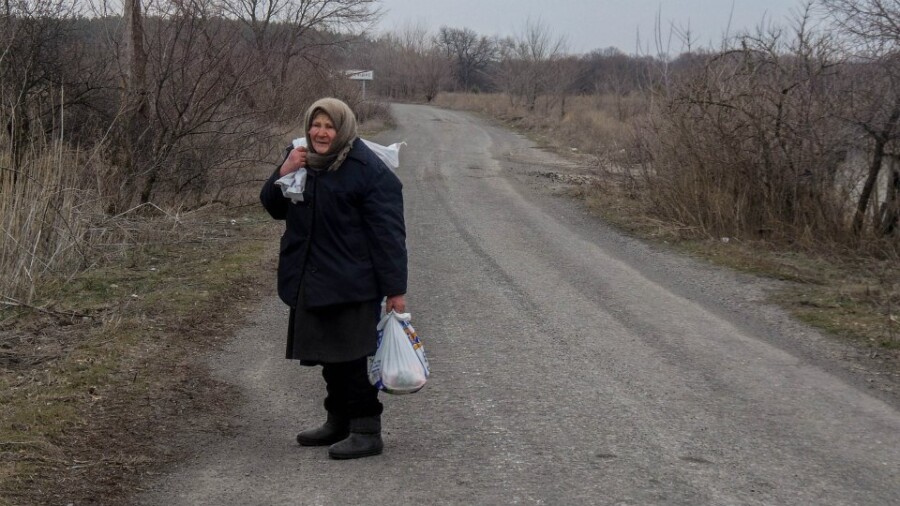 Illustrative photo / Vostok-SOS
Illustrative photo / Vostok-SOSThis draft law was published on the official website of the Ministry of Reintegration of the Temporarily Occupied Territories on January 11, 2021.
First of all, the experts of the coalition of organizations which is aimed to protect victims of the armed conflict note that the development and publication by the Ministry of Reintegration of a draft law for public consideration is an important step to start a broad discussion on the state policy to overcome the negative consequences of the armed conflict in Ukraine.
The draft law, the analysis says, proposes a number of positive changes for people living in the occupied territories. In particular, it is the introduction of an administrative procedure for establishing the facts of birth and death for residents of the temporarily occupied territories in Donetsk and Luhansk oblasts, as well as in the Autonomous Republic of Crimea and the city of Sevastopol; guarantees of pension provision for residents of the occupied territories without reference to the receipt of an IDP certificate; the abolition of the permit system for crossing the demarcation line, etc.
At the same time, a detailed analysis of the text of the draft law, conducted by the experts of the coalition, indicates the need to finalize it with the involvement of experts from national and international organizations, as well as relevant government agencies.
The main reservation to the very concept of a uniform law is the obvious impossibility of resolving through it of all issues that have arisen or will arise as a result of the protracted armed conflict on the territory of Ukraine. Therefore, due to the attempt to cover a large number of significant issues, the draft law leaves serious “gaps” in the regulation of specific areas (for example, issues of lustration, work with the memory of the conflict, etc.).
Besides, this approach violates the principle of legal certainty, and therefore the most significant risk of the draft law is the unpredictability of the consequences of its implementation.
The experts of the human rights organizations have concluded that there is a possibility of nullifying the positive obligations of Ukraine, in particular regarding the compensation for the value of the destroyed or damaged property. Currently, the draft law, developed by the Ministry of Reintegration, places all responsibility for the damage and, as a consequence, the compensation for it exclusively on the aggressor state.
Also, according to the coalition experts, the draft law proposes a number of common solutions for the temporarily occupied territories of Crimea and Eastern Ukraine, which are, firstly, not sufficiently justified, and secondly, in case of implementation will worsen the situation compared to the current one (for example, the introduction of a customs regime with the occupied territories).
Read more here.
If you have found a spelling error, please, notify us by selecting that text and pressing Ctrl+Enter.

